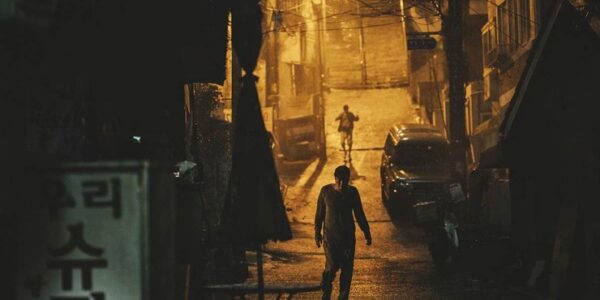I finally saw Parasite. And now I plan to show the ‘flood scene’ in the film to anyone who cares to watch. Bong Joon-ho, in those five minutes conveys so much, while saying so little, that it should be compulsory viewing in any talk about climate change and extreme weather events.
I have spent the last four years talking and thinking about the floods that ravaged Chennai in 2015. I have tried my best over several talks about the floods, to explain what it is like to be in the throes of a disaster. The horror and inequity of it all. The rage and the pity one feels for oneself… I tried over several pages to explain this feeling, in Rivers Remember, last year. I try reading excerpts at book events in the hope that I can help others be prepared. I am going to stop that now. Instead I will direct everyone towards this scene.
In this part of the film (that made history at the Oscars) the Kim household goes under, after a river breaches, following heavy rains. I read about how Joon-ho staged this flood scene. He built the set inside a water tank so he could submerge the home easily. That itself reads like a metaphor for what happens in cities to water bodies and why homes flood. While the actors in the film got a mud bath, as the makers added clay with healing properties, the scene actually conveyed in grim detail how the Kim home was submerged in… sewage.
The entire sequence is utterly powerful. Their home and everything in it is gone. The father reaches out to a medal that’s precious. They are submerged in neck-deep water and one of them receives an electric shock. Almost all of these things happen in a real flood and they are exacerbated in poor neighbourhoods.
The most striking part of the scene however, is the one where the toilet is spitting sewage out relentlessly. What makes this so powerful is of course the fact that this happens in real life. In real floods. It happened in my childhood home. After trying to stop the toilet from throwing more sewage into her home, Jessica ‘only child’ gives up, and sits on it. For a smoke…

parasite-bong-joon-ho
At this point of the film, I sat back and sighed. I feel you, Jessica… I muttered. “How does one pack 21 years of one’s life and into what? Where does one go for boxes large enough and how does one know how much time one has?” I’d asked myself while writing about my home flooding.
The sequence is intercut with further helplessness of those further down in the underground in the Park household… Making for an unpalatable five minutes that combine the horrors of extreme weather events and economic disparity.
Recommended
The poor family having just returned from the comforting embrace of Parks’ home that only has a view of the rains and is not affected by the floods, feels the burden of their own poverty further. The next day when the woman of the rich household says the sky is clear and is thankful for the rains of the previous night, you can feel the rage building in her driver.
And even before the floods, the poor family in the film, has to deal with drunkards who use the outer wall of their semi-basement home as a toilet…
While Parasite is an editing marvel, showing us how the maker can play with metaphors while at the editor’s table (like with the ending for instance), this particular scene is not only made richer by the metaphors and meanings it conveys in such a short time, but also by the cuts it goes to and comes back from, bringing home that ‘something is about to go very wrong’ feeling.
Parasite is now streaming on Amazon Prime in India.



